The Keys to WhatsApp’s Whirlwind Success
Ikonische Produkte Folge 005
WhatsApp has had a unique, and somewhat unlikely, rise to mobile messenger fame. 🚀
Founded in 2009 and famously acquired by Facebook in 2014 for $19 billion, WhatsApp boasts more than 1.5 billion monthly active users worldwide (as of December 2017) — making it far and away the most widely used mobile messenger app in the world.
Even Facebook CEO Mark Zuckerberg once said on a conference call in regards to WhatsApp’s growth, “No one in the history of the world has done anything like that.”
Was macht WhatsApp also so besonders? Was ist das Besondere an diesem Produkt, das zu seiner großen Beliebtheit beigetragen hat?
Let’s explore further! 🕵
WhatsApp builds a product, not a company
The idea for WhatsApp stemmed from co-founder Jan Koum’s annoyance of missing phone calls at the gym. Because of this, he and co-founder Brian Acton then decided to build an app that could let their friends know of their “status” when they were unavailable.
As Koum once explained it, “We didn’t set out to build a company. We just wanted to build a product that people used.”
The beauty of WhatsApp is its single-minded product focus. It’s a simple platform that is well-built and reliable, all while maintaining the privacy of the users. 🔐
WhatsApp’s priority from early on was to create a clean, lightning fast communications service that works flawlessly.
Although the app didn’t take off right away, they later added the messaging aspect of the product and it started to gain traction.
And gain traction it did: it’s estimated that more than 1 million new users join WhatsApp and 55 billion messages are sent on the platform every day. 😱
Darüber hinaus teilen die Nutzer täglich 4,5 Milliarden Fotos und eine Milliarde Videos.

Im Gegensatz zu den meisten Start-ups wurde dieses Wachstum ohne jegliches Marketing erreicht. Und trotz dieser verrückten Zahlen arbeitet WhatsApp immer noch mit weniger als 100 Mitarbeitern (abgesehen von den Ressourcen, die Facebook ihnen jetzt zuweist).
From day one, WhatsApp has focused on making the best messaging app possible — every feature and improvement that has followed has been with this goal in mind.
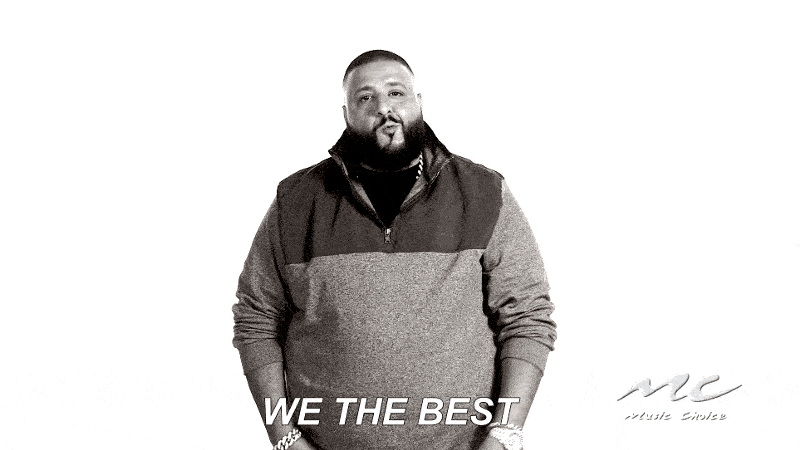
As Koum once pointed out, “WhatsApp’s extremely high user engagement and rapid growth are driven by the simple, powerful and instantaneous messaging capabilities we provide.”
The co-founders also haven’t been ones for fame and attention. Koum and Acton wanted a different company from the beginning — they didn’t even have a sign outside their office door.
In an interview with Wired, Acton said, “We’re the most atypical Silicon Valley company you’ll come across. We were founded by thirtysomethings; we focused on business sustainability and revenue rather than getting big fast; we’ve been incognito almost all the time; we’re mobile first; and we’re global first.” 🌎
Ein werbefreies Erlebnis
As WhatsApp does not store users’ messages and uses end-to-end encryption, it has never placed advertisements within the interface.
Hierfür gibt es mehrere Gründe.
First, they didn’t want to make the user the product. They wanted to build a service that people wanted to use because it worked. They didn’t want to take user data and turn it into targeted ads.
As they don’t store messages in order to maintain the privacy of the user, they negate the ability for companies to pay for targeted ads on the platform (this is true as well vice versa).
Second, they felt that they didn’t want to have people try to avoid ads in the app.
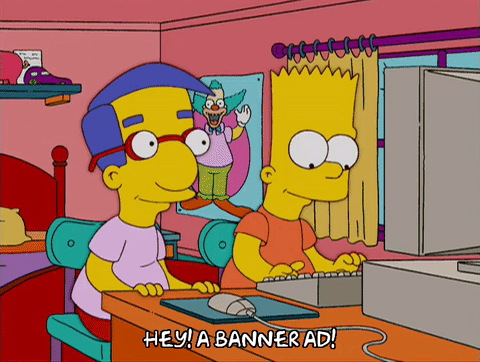
As WhatsApp explained, “Ads suck and ads suck even more on the small screen of a mobile device. We want to provide the best user experience and doing advertising will only get in the way of clean UI.”
They also said on their blog, “No one wakes up excited to see more advertising, no one goes to sleep thinking about the ads they’ll see tomorrow. We know people go to sleep excited about who they chatted with that day…We want WhatsApp to be the product that keeps you awake…and that you reach for in the morning. No one jumps up from a nap and runs to see an advertisement.”
Damit bleibt WhatsApp dem Ziel treu, ein zuverlässiges Nutzererlebnis ohne Gimmicks und Reibungsverluste zu bieten.
Finally, they figured they could charge a tiny fee directly. Which they did — for a little while, at least. 💵
WhatsApp used to have a 99 cent annual fee, but this was later killed because it wanted to reach more users in places like India and Brazil, as these users don’t necessarily have a credit card or the infrastructure in place to make payments.
While it’s a bit unclear how exactly WhatsApp is making up revenue for the lack of a subscription model, it appears that the shift toward more enterprise uses will have something to do with it (more on that in a minute).
Focus on the product, not tech for tech’s sake
That’s not to say WhatsApp’s tech isn’t great — but it definitely wasn’t an “aha!” moment or some mind-blowing technological breakthrough that created the multi-billion-dollar company.
WhatsApp essentially solved problems by using tools and tech that were already available — not by reinventing the wheel.
So, in a nutshell, the success of the product is defined mostly by the product itself, not the tech — let’s explore a few of the attributes that make the product unique.
First, a major aspect of the product, which seems simple now, is the fact that they built a messenger that connects to contacts from a phonebook. 📲
Viele andere Messaging-Plattformen erfordern separate Nummern oder Benutzernamen, was die Benutzerfreundlichkeit beeinträchtigt. Die Art und Weise, wie WhatsApp sich entschied zu arbeiten, war damals bahnbrechend.
Second, before WhatsApp, there was the pain point of people not knowing if someone received their message. 🤷
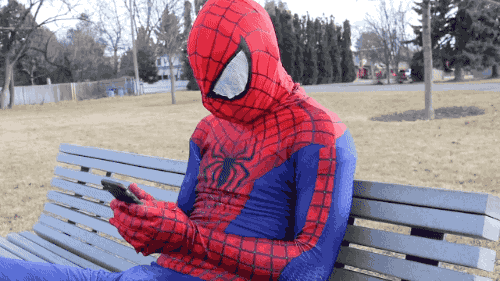
SMS können unbeständig sein, und nicht jeder sitzt immer vor seinem Computer, um eine Skype-Nachricht zu empfangen. Eine Plattform zu haben, die mit Ihrem Telefon funktioniert, war also eine Einsicht in WhatsApp, die dem Team half, etwas Neues, Nützliches und Zuverlässiges zu schaffen.
Drittens hat WhatsApp früh erkannt, dass die Fokussierung des Produkts es viel leistungsfähiger macht. WhatsApp wusste, was seine Kunden wollten, und hielt sich daran.
Auf diese Weise wurde der Versuchung vorgebeugt, mehrere Dinge auf einmal zu tun und dabei das Kernangebot aus den Augen zu verlieren.
Finally, they’ve understood the importance of immediately setting up everything in a scalable way. Their way of working has stayed virtually the same since the beginning.
Mix these aspects with the fact that they localized to different languages early on — thereby understanding the need to connect with customers globally — and you have a recipe for success. 👩🍳
WhatsApp democratized messaging, calls and video chat
Noch bevor WhatsApp seine 99-Cent-Abonnementgebühr abschaffte, hatte das Unternehmen seinen Nutzern mobile Nachrichten zu seinem bisher günstigsten Preis angeboten.
Da es viele Orte auf der Welt gibt, die ihren Nutzern Gebühren pro gesendeter SMS oder MMS berechnen, war (und ist) WhatsApp die offensichtliche Alternative, wenn es um den Versand von Nachrichten geht.
Später baute das Team neue Funktionen auf die bestehende Messaging-Plattform auf, z. B. Gruppenchats, Standortfreigabe und Sprachnachrichten.
This means that you can call, text or video chat with any other user in the world — for free. 📞
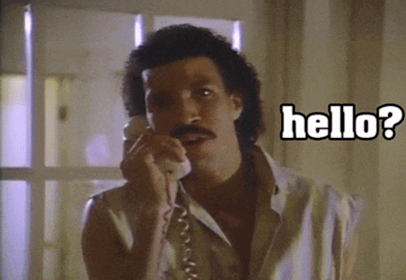
And you didn’t even need to sacrifice your personal data for this free service!
Reliable, Fast, Secure
It’s safe to say that WhatsApp is optimized for reliability — as we touched on earlier, when you send a message on WhatsApp, you know it will get there.
Und die bereits erwähnte Ende-zu-Ende-Verschlüsselung aller gesendeten Nachrichten ist ein weiterer Beweis für die Sicherheit.
WhatsApp fühlt sich auch schneller an als zum Beispiel iMessage.
The grey check mark that appears when you send a message in WhatsApp is instantaneous — giving users the feeling of speed compared to the whoosh sound or the loading bar that is part of the iMessage experience…it just feels slower, even if it actually isn’t. ✅

Simply put: WhatsApp’s strengths are its simplicity, performance and service reliability.
Neue Anwendungsfälle, unendliche Möglichkeiten
WhatsApp has recently found new applications for its product — even in an enterprise context.
Im September gab das Unternehmen bekannt, dass es neue Tools für ein WhatsApp Business-Produkt entwickelt und testet, sowohl für kleine Unternehmen als auch für eine Unternehmenslösung für Großunternehmen.
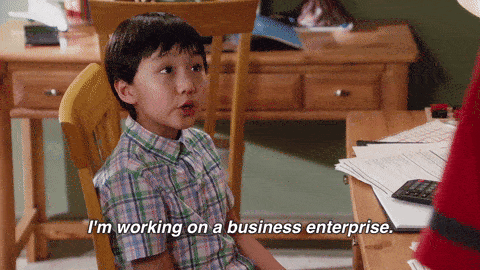
One such example of this in action is from the airline KLM, which now uses WhatsApp as a way to connect with customers regarding flight times, schedule changes and more. ✈
This tool is quite similar to the Messenger services offered through Facebook — so it will be interesting to see if WhatsApp takes off in a similar fashion (especially since this will probably be the route they take to build their revenue model).
Die Nutzer von WhatsApp haben auch begonnen, neue Wege zur Nutzung der App zu finden. Einige Beispiele: Unternehmen, die die Gruppenfunktion für die interne Teamkommunikation nutzen, lokale Restaurants, die es als Möglichkeit für Kunden nutzen, Essenslieferungen zu bestellen, und sogar Unternehmen wie Ace & Tate, die ihren Kundendienst über die Plattform verwalten.
WhatsApp goes to show that even with a simple product, the uses and possibilities can be endless. 🎉
As WhatsApp continues to grow and connect people globally, we’re excited to see where it’s headed next!
What do you love most (or dislike most) about WhatsApp? Let us know in the comments! ✨
Möchten Sie weitere Iconic Products kennenlernen? Lesen Sie die gesamte Serie hier!
Wir hoffen, dass Ihnen dieser Beitrag gefallen hat. Wenn ja, empfehlen Sie ihn weiter!
Weitere aktuelle Informationen über Start-ups, Wachstumsmarketing und Vertrieb:
- 22+ Beste Vertriebs-Podcasts, die Sie sich 2024 ansehen sollten - 21. Dezember 2023
- Cold-Calling-Skripte für echte Menschen - 21. September 2023
- Die 25+ besten Verkaufstools, die Ihr Team erfolgreich machen - 10. August 2023
